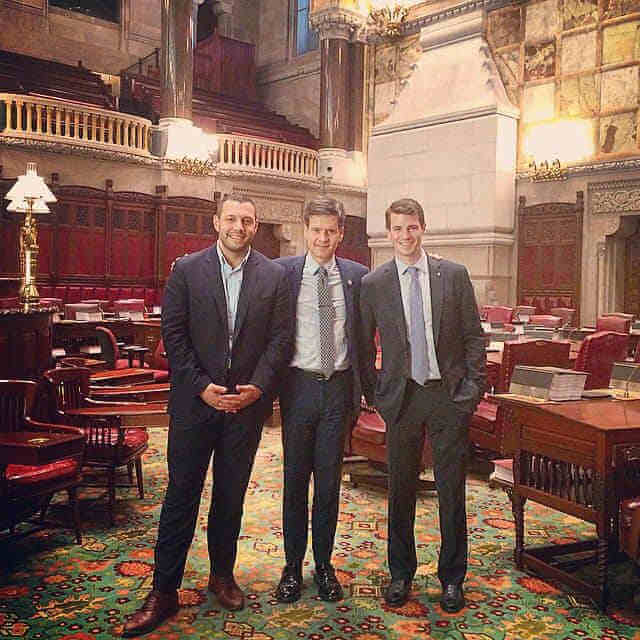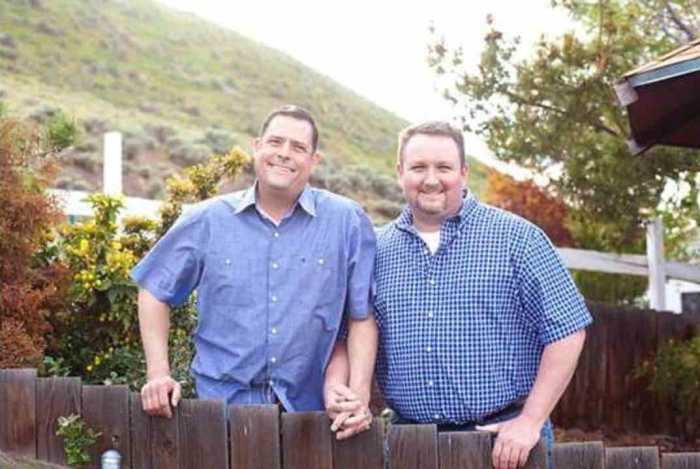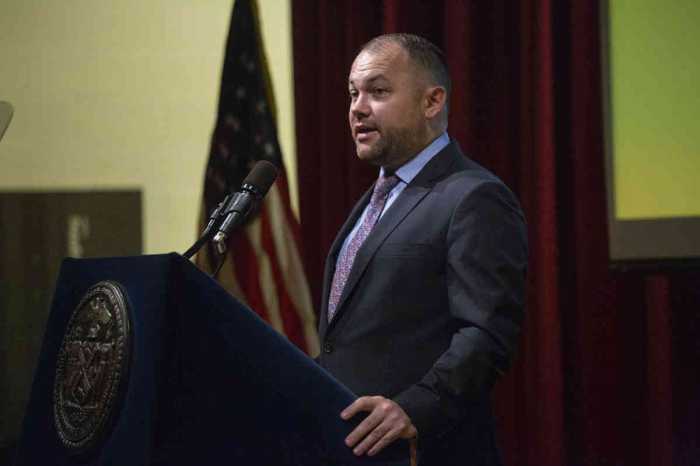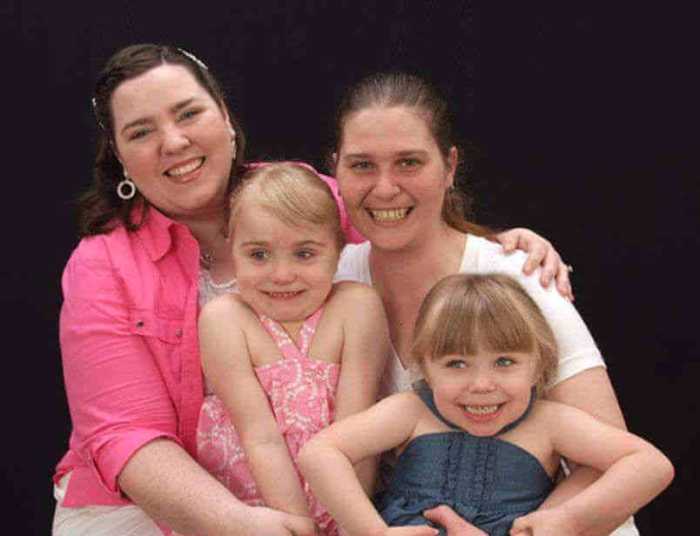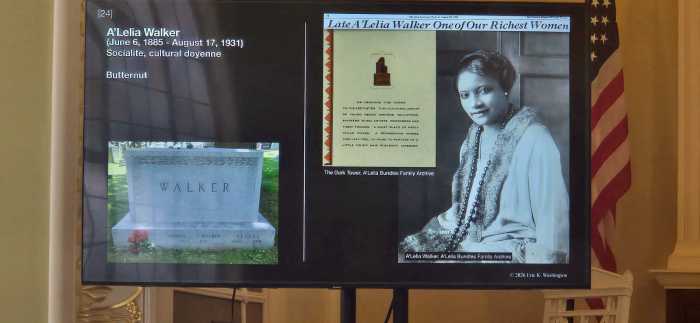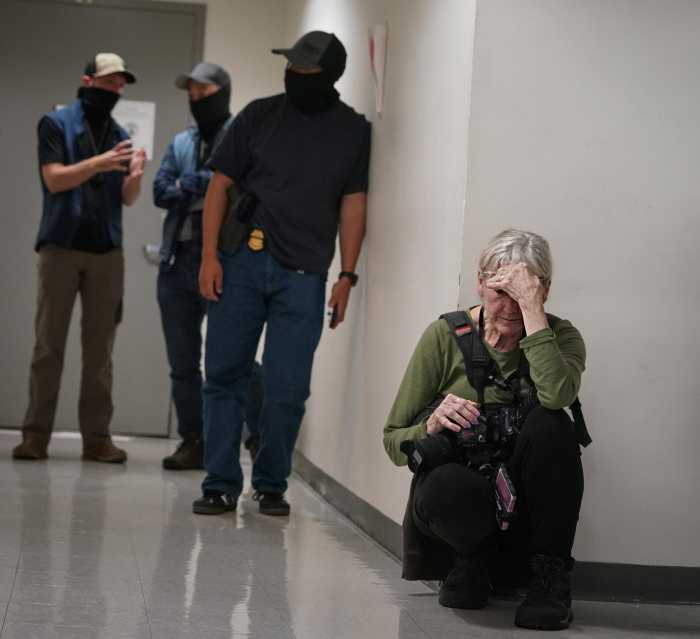Alliance Defending Freedom (ADF), the anti-gay Christian legal organization based in Scottsdale, Arizona, has filed a lawsuit challenging the constitutionality of New York City’s law prohibiting the practice of conversion therapy.
The suit, which was filed in US District Court in Brooklyn on January 23, comes in response to a bill enacted by the City Council in November 2017, which became law on January 5 of last year after Mayor Bill de Blasio returned it to the Council unsigned — though he did not veto the measure.
ADF’s action came the same week as Governor Andrew Cuomo signed a state law banning conversion therapy, but the city measure is probably the broadest push back against conversion therapy enacted in the nation. State laws on the subject, including the one approved in Albany this month, limit their bans to the provision of such therapy to minors by licensed health care professionals and designate the offense as professional misconduct. The city law, by contrast, applies to “any person” who provides such therapy for a fee to any individual, not just minors, and it imposes civil penalties ranging from $1,000 to $10,000 per violation.
The measure does not contain any express exemption for religious counselors or clergy, but presumably if they do not charge a fee for their services they are not subject to the law.
Legal challenges to the state conversion therapy bans, of which there are now more than a dozen, have so far been unsuccessful, but it is not clear that the sweeping city law will benefit from some of the legal doctrines that states have successfully marshaled to defend their laws. Most importantly, the state laws fall comfortably within the traditional state role of regulating health care delivery by licensed practitioners, and by being restricted to minors, they rest within the state’s traditional function of parens patriae, caring for the welfare of minors, which can at times mean defending minors from well-meaning but harmful actions of their parents, such as refusing blood transfusions or medication for serious illnesses.
ADF is asking the court to issue a declaration that the law is unconstitutional and to issue an injunction against its enforcement.
ADF has found a seemingly sympathetic plaintiff, Dr. David Schwartz of Brooklyn, a “counselor and psychotherapist practicing in New York City who has a general practice but who has regularly had, and currently has, patients who desire counseling that the Counseling Censorship Law prohibits.” “Counseling Censorship” is a term coined by ADF to describe Local Law 22 in order to underscore the First Amendment basis of its challenge.
The complaint describes Schwartz as an Orthodox Jew whose patients come mainly from the Chabad Lubavitch ultra-orthodox community. Schwartz cites the late Lubavitcher Rebbe Menachem Mendel Schneerson as an authority supporting the practice of conversion therapy. The description of his practice does not mention child patients, stating: “Dr. Schwartz works only with willing patients — patients who voluntarily walk into his office and talk with him because they want and value his counsel. And Dr. Schwartz does nothing to or with his patients other than listen to them and talk with them.” Schwartz states his fear that the city law will be used against him.
ADF was smart to avoid mentioning minors, since that would run afoul of the new state ban on conversion therapy.
ADF positions its case primarily as a challenge to government censorship of free speech and free exercise of religion. The complaint insists that the only therapy Schwartz provides is “talk therapy,” eschewing the cruel practices that were described in a New Jersey court a few years go in a case brought by emotionally damaged patients of JONAH, a Jewish conversion therapy organization that involved parents effectively forcing their teenage children to subject themselves to bizarre “therapeutic” procedures to “change” their sexual orientation.
Without indicating the age range of his patients, the Schwartz complaint says that he “does not view it as the psychotherapist’s role to rebuke patients or to tell them the direction they ‘ought’ to go.” Some of his patients, the complaint states, “come to him seeking his assistance… in reducing their same-sex attractions and developing their sense of sexual attraction to the opposite sex.” Schwartz insists that he “does not attempt to increase opposite-sex attraction or change same-sex attraction in patients who do not desire his assistance in that direction. In working with patients who desire to decrease same-sex attraction or increase their attraction to the opposite sex, Dr. Schwartz never promises that these goals will be achieved.”
Schwartz, the complaint states, “does not use electro-shock therapy… [and] does not recommend that patients view heterosexual pornography or that they subject themselves to painful or other adverse stimulations in response to undesired sexual thoughts. Dr. Schwartz simply listens to what his patients share with him, and talks to them.”
The complaint acknowledges that some of these patients are unsuccessful and others simply stop the therapy, but claims that Schwartz has had success with some patients who have “over time” experienced “changes” that “have enabled [them] to enter into heterosexual marriage that they desired.”
Interestingly, the complaint refers repeatedly to “reducing” same-sex attraction without ever asserting that Schwartz claims to have “eliminated” such attraction in his patients. Proponents of conversion therapy typically shy away from formal documentation of outcomes, insisting that patient confidentiality precludes providing concrete examples. The complaint cites no published scientific authorities supporting the efficacy of talk therapy in changing sexual orientation.
ADF’s legal theory here is that the city’s law is a content-based regulation of speech “aiming to suppress the dissemination of ideas and information about human sexuality and the human capacity for change in this area” and “does not adopt the least restrictive means to pursue a compelling government interest.” The government, the suit asserts, “has no cognizable interest at all — let alone a compelling interest — in preventing citizens from hearing ideas that those citizens with to hear in a counseling relationship.” The suit argues that the law both prohibits and compels speech, in the sense that it “effectively requires Dr. Schwartz to tell the patient that no change is possible, which Dr. Schwartz does not believe to be true.”
The complaint also argues that the law violates the First Amendment rights of patients who want to receive talk therapy to change their sexual orientation. And, of course, it focuses at the end on the Free Exercise Clause, arguing that Schwartz “has a right to use his professional skills to assist patients to live in accordance with their shared religious faith, including the religious mandates of the Torah and the teachings of the Lubavitcher Rebbe and other respected Orthodox Jewish authorities based on the Torah.”
ADF further argues that because the Council enacted the law knowing that “it was hostile to and targeting practices particularly associated with persons and communities adhering to traditional religious beliefs,” it is “not a neutral law of general applicability,” even though it nowhere mentions religion.
All the attorneys listed on the complaint are staff attorneys of ADF based in Scottsdale, Arizona, and no member of the New York bar is listed.

